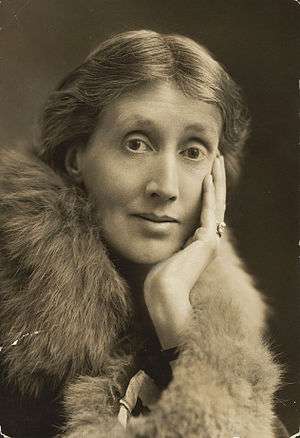Virginia Woolf

Virginia Woolf was an English author, primarily known for her novels and literary criticism. She is considered part of the Modernist movement.
Born Adeline Virginia Spencer in 1882, the daughter of a model and a respected historian, Virginia began to suffer nervous breakdowns in her teenage years, following the death of her mother and younger sister. Following the death of her father, she became the centre of a group of writers and artists known as the Bloomsbury group, and married Leonard Woolf in 1912. Woolf's first novel was published in 1915, and during the 20s her works became well-known for their unusual style and supposedly scandalous content. Woolf was also a prominent critic, attacking writers such as H.G. Wells for favouring utilitarian concerns over aesthetic ones, and also writing extensively on the role of women in fiction and academia. Woolf suffered from depression throughout her life, and committed suicide in 1941.
Although famous and well regarded in her life time and following her death, Woolf was seen as inferior intellectually to male modernists such as Joyce and Eliot. However, the rise of feminist criticism in the 1970s sparked renewed interest in Woolf's work and secured her place as one of the most prominent English language writers of the 20th century. Her novels are best known for their formal experimentation, feminist and lesbian themes, and intense, lyrical prose style.
- Jacob's Room
- Mrs. Dalloway
- To the Lighthouse
- Orlando
- The Waves
- A Room of One's Own
- Creator Breakdown: Woolf suffered from mental illness throughout her life, which particuarly informed her writing of the shell shocked Septimus in Mrs. Dalloway.
- Downer Ending
- Gender Bender: Orlando.
- Les Yay: She was Bi the Way in real life.
- Seinfeld Is Unfunny: Whether or not you like her, she was a very influential writer especially within the Modernist movement.
- Straw Feminist: Fairly or not, she is rather associated with these.
- Time Skip: Used in Jacob's Room and To The Lighthouse.
- True Art Is Angsty
- True Art Is Incomprehensible
- World War I: Has a notable effect on characters in several books.